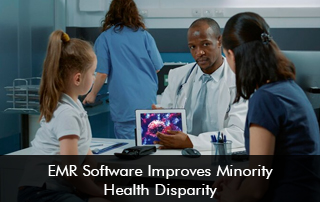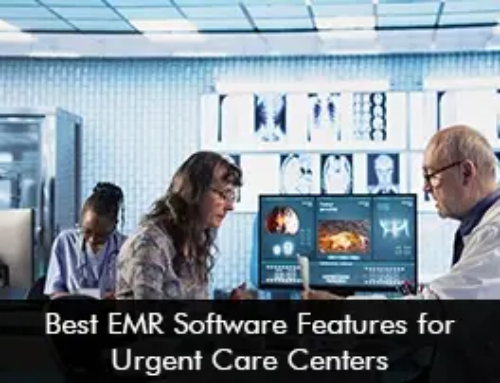Minority communities, including Black, Hispanic, Indigenous, and other marginalized groups, often face significant challenges in accessing quality healthcare services. However, EMR software brings a beacon of hope. It has the potential to revolutionize healthcare delivery and mitigate minority health disparities.
Understanding Minority Health Disparity
Before we explore the role of EMR software, it’s essential to understand the nature and extent of minority health disparities. These disparities encompass a wide range of health indicators. These could include higher rates of chronic diseases, lower life expectancy, and limited access to preventive care among minority populations. Structural inequalities, socioeconomic factors, cultural barriers, and historical injustices contribute to these disparities. All this creates complex challenges for healthcare providers and policymakers.
The Role of EMR Software in Improving Minority Health
EMR software serves as a powerful tool in addressing minority health disparities by enhancing various aspects of healthcare delivery.
Access to Culturally Competent Care
One significant barrier to healthcare access for minority populations is the lack of culturally competent care. EMR software allows healthcare providers to document patients’ cultural backgrounds, language preferences, and unique health needs. With this information readily available, providers can deliver personalized care that respects patients’ cultural beliefs and values. This leads to better health outcomes.
Streamlined Communication and Coordination
Effective communication and coordination among healthcare providers are crucial for delivering quality care, especially for patients with complex health needs. EMR software facilitates seamless communication and information sharing among members of the healthcare team. This includes primary care physicians, specialists, nurses, and social workers. This interdisciplinary approach ensures that minority patients receive comprehensive care that addresses their medical, social, and psychological needs.
Patient Engagement and Empowerment
Empowering patients to actively participate in their healthcare decisions is essential for improving health outcomes and reducing disparities. EMR software offers patient portals and mobile applications that enable minority patients to access their medical records, schedule appointments, and communicate with their healthcare providers remotely. By fostering greater engagement and autonomy, EMR technology empowers minority patients to take control of their health and advocate for their needs within the healthcare system.
Data-Driven EMR Software Insights and Population Health Management
EMR software generates vast amounts of data on patients’ health status, treatment outcomes, and utilization patterns. Analyzing this data through advanced analytics tools allows healthcare organizations to identify disparities in care delivery and tailor interventions to address the specific needs of minority populations. Population health management initiatives powered by EMR software enable healthcare providers to implement targeted interventions, such as preventive screenings, chronic disease management programs, and community outreach efforts, to improve health equity.
EMR Software Reduces Documentation Bias and Medical Errors
Documentation bias, unconscious stereotypes, and cultural misconceptions can influence clinical decision-making and contribute to disparities in healthcare delivery. EMR software standardizes documentation practices, reducing the likelihood of bias in medical records and treatment recommendations. Moreover, features such as clinical decision support systems and medication reconciliation modules help healthcare providers avoid errors and ensure that minority patients receive appropriate and evidence-based care.








